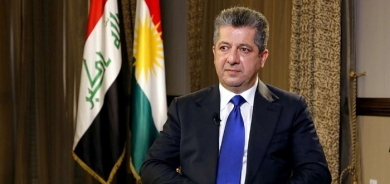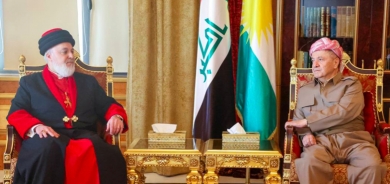KURDISTAN, OIL & ECONOMIC PROGRESS

On the other hand, critics point out how Iraqi Kurdistan is a classic rentier state, largely dependent on the oil revenues it receives from Baghdad and thus susceptible to all the problems associated with that status. Corruption and nepotism are problems and there is a perception that business ventures need partnering with the leading politicians. What then is the true situation?
The KRG annually receives 17 percent of the Iraqi budget which last year meant it received about $10 billion. In addition, the Iraqi government is now paying oil companies for their production costs in Kurdistan plus part of their profits. (The term “petrodollars” here refers to the extra money received from oil and gas.) The KRG argues that Article 115 of the Iraqi Constitution states the supremacy of regional laws over federal laws. Since the Iraqi Constitution is silent on undeveloped or new oil fields, the regions and governorates have all the controls. After much debate between Baghdad and Irbil, the Kurds, as of September 2011, are producing about 100,000-150,000 bpd. As indicated above, after much debate and numerous false starts, Baghdad is also now paying the oil companies in Kurdistan for their production costs and partially for their profits. Many observers speculate that without any formal agreement these Baghdad cost payments will eventually cross over into payments for profits too. This money is in addition to the 17 percent paid each year to the KRG from the Iraqi annual budget.
Early in 2011, the KRG announced it had an estimated 45 billion barrels of oil reserves. Thus, if the KRG were independent, it would possess the world’s sixth largest oil reserves. Kurdish production can reach 1 million bpd by 2015. The KRG also has a potential of some 100-200 billion cubic feet of non-associated natural gas.
Unfortunately, the KRG and Baghdad have again fallen into heated disagreements over the oil resources in the Kurdish region. Who has the stronger claim? The argument goes to the heart of the relationship between the two and the future of Iraq’s federal system. In May 2012, Rex J. Zedalis published an important book that analyzes this question in great detail. His book is aptly entitled: Oil and Gas in the Disputed Kurdish Territories: Jurisprudence, Regional Minorities and Natural Resources in a Federal System. This book should be closely read by those who want an expert opinion.
Although oil is the KRG’s main economic resource, there are others to consider. For example, given the KRG’s progressive investment law, free-market practices, and excellent security situation, foreign investment in the region is expanding tremendously. As already noted, in March 2011 FDI Magazine, a subsidiary of the British publication Financial Times, ranked Irbil fifth among the top Middle Eastern cities in terms of potential for foreign direct investment (FDI). Turkish and Iranian investments led the way, followed by Jordan, Germany, France, the UAE, etc. The United States lagged. However, starting up a business is quite expensive ranging from $3-10,000. Trading also is still a problem as one needs a license, a situation that harks back to the earlier autarkic Iraqi economy of Baathist days and also presents opportunities for corruption.
Bilateral trade between Turkey and Kurdistan is projected to grow from $6 billion to $20 billion in the next four years. The excellent new airport in Irbil has the world’s fifth longest runway and the longest in the Middle East. Sulaymaniya also has a new smaller international airport. A third airport is now projected for Dohuk. Several luxurious new shopping malls have been constructed in Irbil, largely replacing the famous ancient Qaysaria Bazaar near Irbil’s even more ancient citadel. The New York Times recently ranked Iraqi Kurdistan as one of the top 34 places to visit in the world, while National Geographic listed it as number 20.
Compared to Arab Iraq, there is a much lesser refugee and IDP (internally displaced persons) problem in Kurdistan. About 20 percent of Arab Iraq’s pre-2003 population is displaced. These tend to be the better educated people who had the resources to leave Iraq and thus constitute a brain drain on Iraq. The less fortunate have been left in Iraq to fend for themselves. To some extent the reverse prevails in Kurdistan as many very capable members of the Kurdish diaspora have returned. (For example, former KRG prime minister Barham Salih and Kirkuk governor Najmaldin O. Karim, among many others.)
Many other positives exist. IT (information technology) developments are impressive, in part because of Iraqi Kurdish language skills. Experts from the international consulting firm PricewaterhouseCoopers have been brought in to advise. Cell phone services are good, but Internet connections need improvements. Electricity shortages have been greatly reduced and this basic service is now available to most in the Kurdish region up to 20 hours a day. Indeed, Kurdistan potentially may become a net exporter of electricity. Better electricity availability improves the standard of living, employment opportunities, and leads to improved goods and services.
Water also is everywhere as five major rivers flow through different parts of the Kurdish region, each eventually joining the Tigris: The Greater Zab, Khabour, Lesser Zab, Awa Spi, and Sirwan. In addition, three major dams control and regulate these rivers: The Dohuk, Dukan, and Darbandikhan. Tourism has great potential given the magnificent mountains and ancient historical sites. Already there are some excellent hotels, while security is good. As for education, illiteracy has been reduced in the past decade from 37 percent to 17 percent. Equal educational opportunities exist for girls and boys, and there are at least six public universities. More will soon be built.
However educational infrastructure problems exist. Up-to-date books and journals are lacking, and the entire culture of higher education needs more dedication on the part of students especially. Still, most observers remain very bullish (optimistic) about the future of Kurdistan.

 Michael Gunter
Michael Gunter






